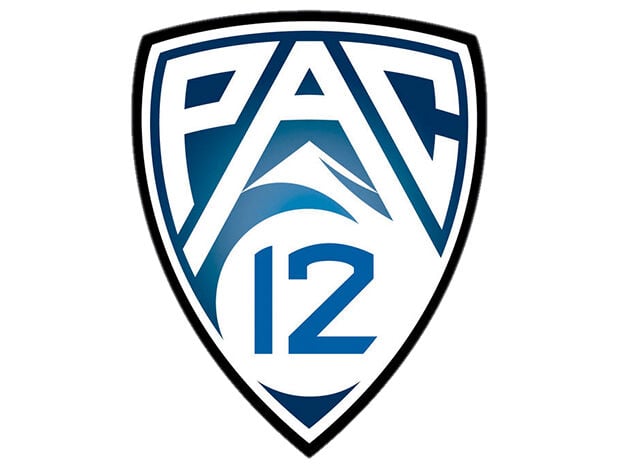Eight Pac-12 football programs have vaccinated at least 80% of their players against COVID-19 with four reaching the 90% mark, Pac-12 commissioner George Kliavkoff told the Hotline in advance of the conference’s 2021 preseason kickoff event Tuesday and the start of training camp next week.
Kliavkoff declined to name the four programs below 80% but expressed optimism that the high football vaccination totals, combined with the requirement on nine campuses that all students get vaccinated, will produce a normal fall on the field.
(One of those nine schools is Washington State, whose coach, Nick Rolovich, has chosen not to get vaccinated and won’t participate in person at the media event Tuesday in Los Angeles.)
“The Pac-12 believes deeply in vaccinations,” Kliavkoff said late last week in a wide-ranging interview.
“It all starts with the health of our student athletes. Getting vaccinated is a competitive advantage … I’m very hopeful that we’ll have a complete football season.”
And what if a team is unable to play because of a COVID outbreak? The Pac-12 hasn’t finalized its cancellation policy.
Last year, the conference established participation thresholds to account for instances when outbreaks forced dozens of players into isolation or quarantine. If a team wasn’t healthy enough to compete, the game was declared no-contest and the financial hit was shared by the collective.
(Each Pac-12 game broadcast by ESPN or Fox generates approximately $6 million.)
But Kliavkoff favors a return to the cancellation policy that was in place for decades before the pandemic: If a team cannot compete, it must forfeit.
“There’s a lot at stake,” he said. “Who bears the (financial) burden? I am leaning to the pre-COVID policy. I don’t think we’ll make a final decision until August, but I want to talk to the athletic directors about it Monday (in Los Angeles), and I want to hear from the coaches.”
Kliavkoff plans to approach the COVID strategy like all other football issues: With significant feedback from the campuses and a singular focus on positioning the Pac-12 for success in the College Football Playoff.
That process began in June, before the official start of his term, when he met with all 12 athletic directors in Las Vegas. The day-long session included a discussion of football strategy that broadly addressed the merits of an eight-game conference schedule and eliminating the division format.
“Part of the outcome of (the) meeting … was a shared commitment to do whatever we can at the conference level to optimize the chances for playoff invitations and championships,” Kliavkoff said.
“I told the athletic directors that nothing was off the table: Should we play eight (conference games) or nine? Should we keep the divisions? Day games or night games? We’re going to spend part of the season digging into that.
“And I want to be 100% clear: Going forward, every decision at the conference level will be made not to reach parity but to optimize the number of playoff invitations and the number of (national) championships.”
The approach will undoubtedly delight fans accustomed to hearing Kliavkoff’s predecessor, Larry Scott, praise the conference’s Olympic sports.
“The scorecard we think matters,” Scott said at Pac-12 football media day three years ago, “is academic and athletic success across all sports.”
That mindset wasn’t shared by other Power Five conferences and ran counter to the financial reality of college athletics, where the football programs generate the revenue that supports money-losing Olympic sports.
Meanwhile, the parity that dominates each Pac-12 season makes for entertaining Saturdays but undercuts the pursuit of College Football Playoff berths.
The conference has claimed just two CFP bids in seven years: Oregon in 2014 and Washington in 2016. Every other major conference has participated at least four times.
One reason for the low hit rate is the Pac-12’s poor performance in the narrative-setting, resume-building non-conference games on Labor Day weekend.
In 2016, USC was embarrassed by Alabama in Arlington, Texas. Two years later, Washington lost a close game to Auburn in Atlanta. And in 2019, Oregon suffered a similar fate against the Tigers in Arlington.
Kliavkoff, who spent three years as the president of MGM Resorts Sports and Entertainment, wants those games played in the Pac-12 footprint.
“There was an ESPN press release recently that had the schedule for the first week of games (in 2021), all of them big matchups,” he said.
“I found (the absence of a Pac-12 game) to be very frustrating. A lot of games are scheduled many years out. But I’ve discussed with Merton Hanks” — the Pac-12’s chief of football operations — “how we can get into the business of creating an event: a recurring, early-season kickoff.”
That topic, and many others, will undoubtedly surface during a barrage of campus visits scheduled over the coming two months.
Kliavkoff was scheduled to meet with the athletic directors Monday in Los Angeles, then deliver his remarks to the assembled media on Tuesday. From there, he heads to USC for the first stop on his 12-school tour.
“I’ve committed to a listening tour and spending several days on each campus,” he said.
“My plan is to see them all by the end of September, before the next playoff (expansion) meeting. I want feedback from all the campuses so that I can best represent the interests of the conference.”
The Kliavkoff era, it appears, is all about the playoff.
Welcome to the real world, Pac-12.





